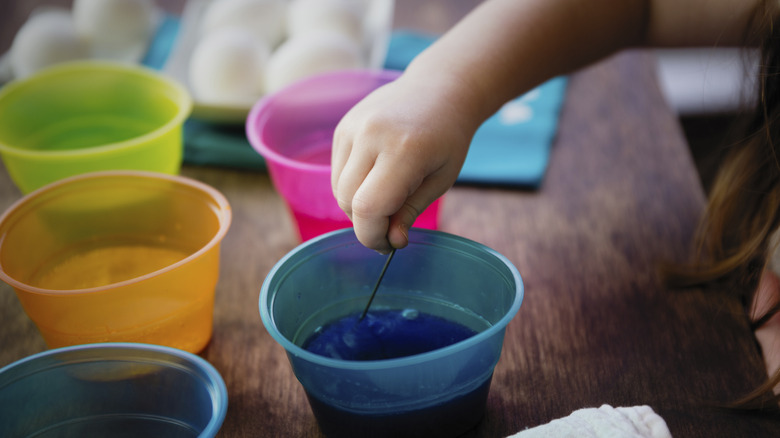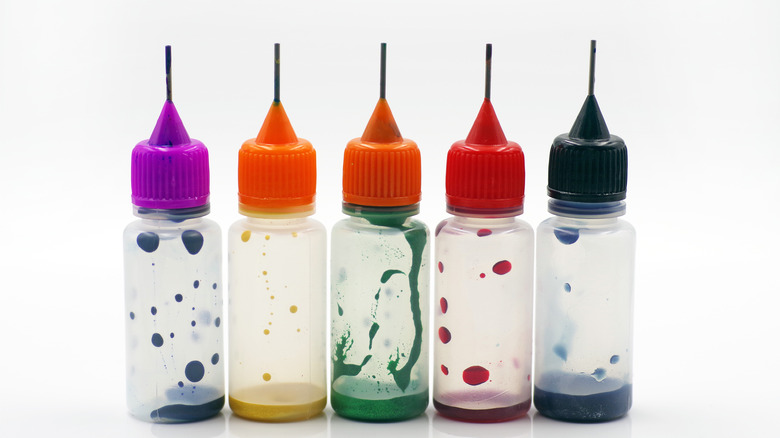No, Not All Food Coloring Is Vegan. Here's What We Know
So many common baking ingredients are decidedly not vegan, from butter to eggs, but the exciting news is that in recent years, the market has exploded to include vegan versions of nearly everything a baker could need or want — and these vegan iterations are actually good. You can fill your baking pantry with vegan staples and rest assured you'll be whipping up delicious cookies, cakes, and pies all completely free of animal products. However, there are still ingredients that pop up from time to time that aren't quite as clear cut — they're not specifically made to be vegan, but they don't seem to contain animal products, so are they vegan or not? One major example of this in baking is food coloring.
At least when it comes to food coloring labeled as natural, many of these products are also considered vegan, because they're made from plants. But there's a big catch. Many red food colorings are a specific pigment called carmine, which is made with cochineal, an insect product. This, of course, means that any of these red food colorings are in fact not vegan. Cochineal might sound gross, but it is totally safe and FDA-approved. Also, it's been used in food and cosmetics for hundreds of years. It comes from a specific little bug called Dactylopius coccus; when the insect is squished, the cochineal comes out. It's a vibrant red, making it appealing for dyes, but it does mean you have to double-check "natural" food coloring ingredient lists.
How to make sure you buy vegan food coloring
Some bakers might reason that if natural food colorings present the risk of having an animal product, maybe artificial is the way to go. But there's plenty of things to know before you use artificial food coloring, and none of it is all that encouraging. It's full of additives and chemicals that, while still being researched, we at least know are not healthy. The kicker is that these fake dyes are usually not even vegan, because those additives are sometimes tested on animals.
So, it's your best bet to stick with natural food colorings, which simply requires a little extra diligence when it comes to checking labels so you make sure you don't get anything with cochineal. There are plenty of brands in stores you can trust, some that are even PETA-endorsed, like Color Garden Food Coloring, Watkins Assorted Food Coloring, and Color Kitchen Single Color Packets.
When it comes to other well-known brands, like McCormick, it can get a little more complicated — some colors are totally free of animal products, some aren't. Read labels until you get to know which brands and which specific hues are safe, and then you can confidently keep those stocked in your kitchen. Consider this new label-examining habit one of the tools and tricks of being a vegan baker, and you can enjoy animal-free treats whenever you're in the baking mood.

